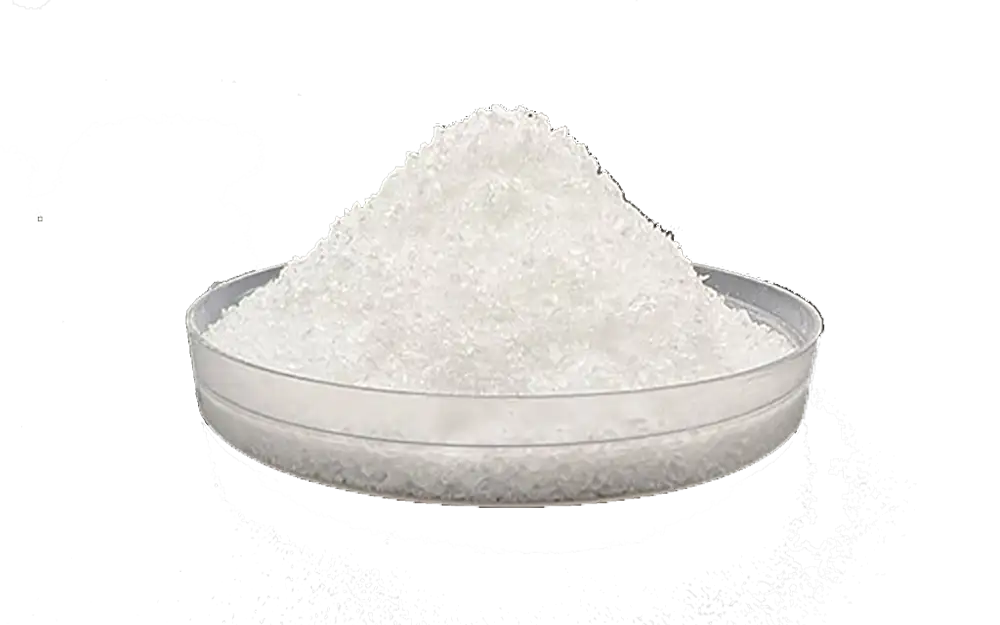Polyvinyl alcohol (PVA), with its simple chemical formula (C2H4O)n, stands as a versatile synthetic polymer that has captivated the attention of various industries. This water-soluble polymer presents itself as a white or cream-colored powder, readily soluble and capable of withstanding temperatures up to 230 degrees Celsius before decomposition. PVA’s unique properties, including biodegradability, solvent resistance, high abrasion resistance, and exceptional tensile strength, have propelled it into a diverse range of applications.
Production of polyvinyl alcohol
Polyvinyl alcohol is produced through radical polymerization of vinyl acetate monomer. In this process, the acetate groups in the polymer chain are converted into hydroxyl groups by hydrolysis.
Properties of Polyvinyl Alcohol
PVA, with its versatile nature and remarkable properties, has carved a niche for itself in a wide spectrum of industries. Its unique characteristics make it an indispensable material for various applications, ranging from textiles and papermaking to adhesives and construction. Let’s delve into the key properties that set PVA apart:
Water Solubility
PVA exhibits exceptional water solubility, readily dissolving in water to form clear, colorless solutions. This property is crucial for its applications in adhesives, paper coatings, and textile sizing.
Biodegradability
PVA stands as an environmentally friendly material due to its biodegradability. Microorganisms in the environment can break down PVA over time, minimizing its impact on the ecosystem.
Solvent Resistance
PVA demonstrates remarkable resistance to a wide range of solvents, including alcohols, hydrocarbons, and weak acids. This property makes it suitable for applications where exposure to solvents is common.
Abrasion Resistance
PVA boasts high resistance to abrasion and wear, making it an ideal material for applications that demand durability. Its ability to withstand friction and wear extends its lifespan in products like films and textile fibers.
High Tensile Strength
PVA possesses exceptional tensile strength, enabling it to withstand significant tension without breaking. This property makes it a valuable material for applications such as gloves and packaging bags.
Film-Forming Ability
PVA’s ability to form thin, transparent films is a key characteristic that has led to its widespread use. These films can be tailored to specific properties, making them suitable for various applications, including packaging, coatings, and protective barriers.
safety tips
Skin contact: In case of skin contact, wash the contact area with soap and water and use a moisturizer. In case of severe irritation, see a doctor.
Eye contact: If you have contact lenses in your eyes, remove them and rinse your eyes with cold water for 15 minutes. Then see a doctor.
Inhalation: In case of inhalation, move person to fresh air. In case of shortness of breath, use oxygen and see a doctor.
Ingestion: In case of ingestion, do not induce vomiting unless prescribed by the medical staff. Remove tight clothing and see a doctor if symptoms occur.
Advantages of Polyvinyl Alcohol
PVA is a versatile synthetic polymer with numerous advantages that make it a valuable material for a wide range of applications. Some of the key benefits of PVA include:
- Flexibility: PVA can be tailored to meet the specific requirements of various applications due to its adaptability.
- Biodegradability: PVA is an environmentally friendly material that biodegrades naturally, making it a sustainable choice.
- Film-forming ability: PVA forms thin, transparent films with excellent mechanical properties, suitable for packaging and other applications.
- Solvent resistance: PVA exhibits resistance to a broad range of solvents, ensuring its stability in various environments.
- Emulsifying properties: PVA serves as an effective emulsifying agent in various industries, including cosmetics, pharmaceuticals, and others.
- Adhesive properties: PVA’s strong adhesive properties make it a valuable material for adhesives used in construction, woodworking, and papermaking.
- Non-toxicity: PVA is non-toxic and safe for human contact and the environment, making it suitable for various applications.
Applications of Polyvinyl Alcohol
PVA’s unique properties have led to its widespread use in diverse industries. Some of the most notable applications of PVA include:
Adhesives
PVA is a primary component in the production of various liquid, tape, and dry adhesives. These adhesives are widely used due to their strong bonding strength and ease of use.
Coatings
PVA is employed as a thickener, stabilizer, and emulsifying agent in paints and resins. It enhances the quality, durability, and ease of application of paints.
Textiles
PVA finds application in textiles as a sizing agent, finishing agent, and anti-wrinkle treatment. It improves the fabric’s quality, lifespan, and wrinkle resistance. In the spinning process, PVA is used to produce synthetic fibers known for their softness, smoothness, and high strength, making them suitable for clothing, carpets, and other textiles. Additionally, PVA serves as a fixing agent in textile printing and dyeing, ensuring colorfastness and preventing color bleeding.
Papermaking
PVA is utilized as a sizing agent, coating agent, and binder in papermaking. It contributes to smoother paper surfaces, improved gloss, and enhanced strength.
Construction
PVA is employed in various construction applications, including drywall joint compound, tile adhesive, and masonry mortar. Its adhesive properties and water resistance make it suitable for these applications.
Packaging
PVA films are used for packaging due to their transparency, biodegradability, and excellent barrier properties, making them ideal for food and other products.
Medical and Pharmaceutical Applications
PVA’s biocompatibility and film-forming ability make it valuable in medical and pharmaceutical applications, such as wound dressings, drug delivery systems, and contact lenses.
Agricultural Applications
PVA finds use in agriculture as a soil conditioner, fertilizer coating, and pesticide emulsifier. It enhances soil moisture retention, improves nutrient delivery, and facilitates pesticide dispersion.
The versatility and beneficial properties of PVA make it an essential material in various industries, contributing to the development of innovative products and processes across diverse sectors.


Leave a Reply